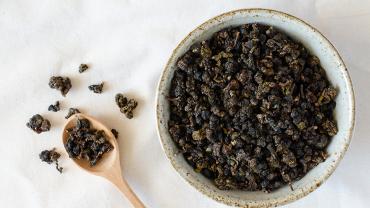
Chronic stress has the potential to impact health in many ways, including the increased risk of developing chronic diseases, such as diabetes and cardiovascular disease. Stressful situations may impact neurotransmitter synthesis, transmission, and balance, including those involved in relaxation such as gamma-aminobutyric acid (GABA).
GABA is the main inhibitory neurotransmitter, blocking nerve impulses and slowing down the activity of nerve cells. In stressful situations, GABA levels can decrease, contributing to an imbalance in the excitatory/inhibitory system. In one study, acute psychological stress led to an 18% decrease in prefrontal GABA levels.
Increasing GABA levels may support managing stress and inducing a calmer state.* In one small study, researchers used an electroencephalogram to study the effect of oral intake of GABA on brain waves. After an hour, the participants experienced an increase in the production of alpha waves and a decrease in beta waves. Alpha waves are produced during relaxation and meditation, whereas beta waves are generally higher in situations of high stress. This may indicate that GABA intake supports a shift into a more relaxed state.
High stages of stress may negatively affect sleep and cognitive function, and studies demonstrate that GABA supplementation may reduce these impacts. A systematic review found that there was promising evidence for potential benefits of oral GABA consumption on stress and sleep, especially on inducing and improving early stages of sleep.
Studies have also demonstrated the potential for GABA to reduce mental fatigue and stress associated with cognitive tasks. One study found a correlation between lower levels of GABA in the occipital cortex and self-reported cognitive failures. This may be caused by the inhibitory processes that improve the ability to filter out irrelevant stimuli to enhance attention. In one randomized controlled trial, taking 100 mg of GABA led to a smaller effect of the mental task on brain waves and a reduction in vigor-activity after mental tasks. Another study found that consuming 50 mg of GABA in a beverage led to a reduction in markers of physical fatigue (including cortisol), lower psychological fatigue, and improved task-solving ability.
Finding ways to manage stress and reduce its impact may support mental, cognitive, and physical health. Many diet and lifestyle factors can help manage stress. Those who are more sensitive to stress or those at a higher risk of the impact of stress may find that supplementing with nutrients, herbs, or neurotransmitter support, such as GABA, may further support a normal stress response and relaxation.*
By Kendra Whitmire, MS, CNS